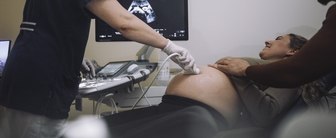Billions of people around the globe have been forced to change how they live and work because of the coronavirus pandemic. Identifying and understanding how behaviors are evolving over the coming weeks and months poses a challenge to many public health experts trying to limit and prevent the further spread of the coronavirus.
For this reason, YouGov partnered with public health experts at the Institute of Global Health Innovation (IGHI) at Imperial College London to help keep up with the rapidly changing world.
The ongoing survey runs in 29 countries and provides behavioral analysis on how different populations are responding to COVID-19. YouGov is making the anonymized respondent level data freely available to researchers all over the world via an online data dashboard.
Self-isolation
One of the best ways to limit the spread of COVID-19 is to avoid face-to-face contact with other people, according to US health authorities at the Centers for Disease Control and Prevention (CDC). Social distancing (i.e., keeping six feet apart from other people) can help while out in public but for those who suspect they might be sick or are sick, the CDC recommends undergoing self-isolation or quarantine to stop further transmission of the disease to others.
On the latter point, at least three in four Americans (77%) say they would self-isolate if they felt unwell or had any of the symptoms related to COVID-19 such as a dry cough, fever, loss of sense of taste or smell, or difficulty breathing. At the global level, 73 percent of people around the world say they would self-isolate if they didn’t feel well with some of the highest rates among people who live in the UK (91%), Brazil (87%), and Sweden (86%) and the lowest rates in markets such as China (25%), Taiwan (26%), and India (50%).
For many around the world, the ability to self-isolate can be a challenge. Approximately one in six individuals in the YouGov/Imperial College London study report that it would be very or somewhat difficult to self-isolate if they were told to do so by a healthy professional (16%). People who live in Japan (37%), South Korea (36%), Philippines (21%), Hong Kong (20%), India (20%), Mexico (20%), Singapore (19%) are significantly more likely to say it is difficult for them to self-isolate for seven days.











